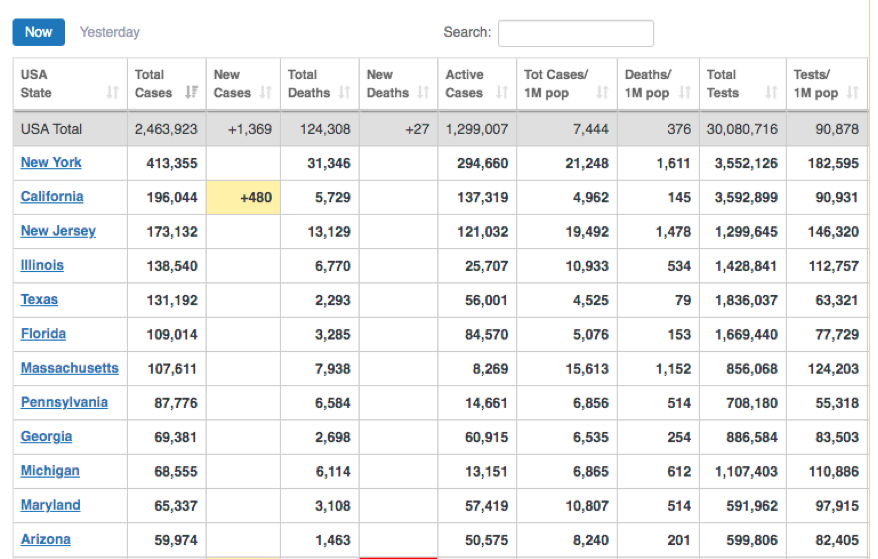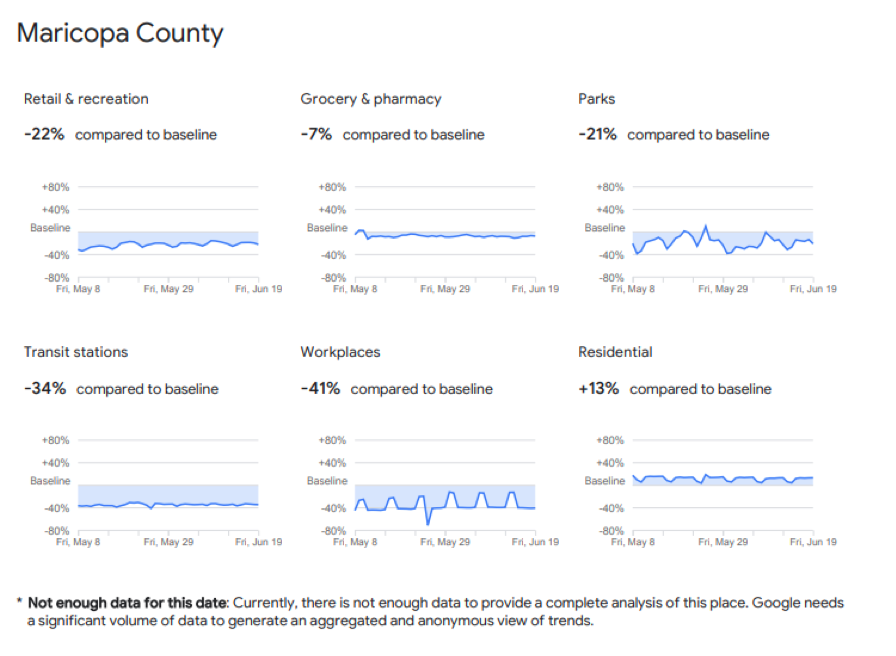Arizona and COVID-19 — We Need to Consider All the Facts
by Dr. Rafael Fonseca
June 25, 2020
The headlines are alarming. Arizona is seeing a spike in coronavirus cases, and that’s prompting understandable concern in the state. But though COVID-19 is a serious situation, fear should not drive our response. A thoughtful consideration of the data is critical as officials consider next steps in response to the pandemic and as individuals decide how to go about their lives.
First, here’s where Arizona stands as of today. The state’s reported COVID-19 cases stand at close to 60,000, with 1,795 new cases on Wednesday, and more than 1,463 deaths. Make no mistake, those are alarming numbers. To be sure, Arizona’s reported new cases have spiked in recent weeks, prompting questions of whether this is the result of a relaxing in the state’s stay-at-home order.
Those are fair questions to ask, but conclusions about next steps in state and local policy shouldn’t be reached without considering other data that provides context about Arizona’s COVID-19 cases, the severity of the pandemic, and the capacity to care for those who are affected. Let’s take a look:
- First, keep in mind that Arizona now reports both PCR and serology tests (you can separate these data in the dashboard). Testing has increased, but also the rate of positive cases has increased.
- Second, let’s consider where Arizona stands in comparison to other states. Today, it is still behind in many metrics, including in total cases, deaths, and per capita adjusted cases.

- Next, let’s consider the hospitalization, ICU, and death rate. There is an increase in the number of hospitalizations, although there still is remaining hospital capacity. And though there is a 50% increase in the use of ICU beds for COVID-19 from about 200 to 300, it is far from what was unfortunately observed in New York City and Italy. Importantly, Arizona is not yet seeing a big increase in mortality.
- Even with the number of cases spiking, Arizona’s hospital systems are not yet full. There is capacity both in ICU beds and ventilators. Furthermore, there is flex capacity to expand. Understandably, we also need the proper staffing for this remaining capacity. Will this be needed? We do not know, hope not, but as of now, there is capacity.
- Where Arizona’s cases are occurring is important, too. Most cases are in Maricopa County, where Phoenix is. But if you look at per capita distribution, there is a greater per capita rate in northeast Arizona, where many in the Navajo Nation have been affected. Valley hospitals are assisting in the care of all in Arizona, ensuring that even those in underserved areas have access to medical treatment.
- Interestingly, the majority of cases is occurring in the younger populations (close to one half of all cases are under the age 50). The majority of deaths is still occurring in the elderly and those with more serious health issues. Given more cases are diagnosed in the younger this might explain why the growth in new cases is higher than the growth of hospitalization. Nevertheless, infected young could infect the elderly and the sick.
Those facts are important to bear in mind when considering the severity of the outbreak in Arizona today, whether the state has capacity to treat those who are stricken with COVID-19, and how the state should react to prevent the spread of the virus.
Apart from the data about known cases and utilization of our hospitals, policymakers should also take a look at other factors that could be contributing to the rise in cases. Governor Ducey’s stay-at-home order expired on May 15. Yet Google mobility data shows that Arizonans have not significantly increased their activity since the expiration of the order. That is not to say there is no reckless behavior, as we have all seen places of recreation where there is no social distancing and minimal use of masks.

It could be that Arizonans are being lax about social distancing, going to packed bars and restaurants, and attending large gatherings. That certainly could be driving the spike in cases. It is also possible that Arizonans are increasingly staying inside due to the hotter summer weather. And if younger Arizonans are the source of more cases, that would explain the lower mortality rate.
That’s a lot of ifs, but that’s also part of the problem the country faces. Data about increasing COVID-19 cases can be scary, and stats are stoking fear in the public. Public knowledge of the facts is more important than ever. Clear, measurable criteria will allow the public to know whether they are taking adequate precautions or not, whether public safety measures are sufficient or need to be increased, and whether their elected officials are acting responsibly. From what we know, continued social distancing and universal use of masks will help to mitigate transmission of the virus. We should all wear a mask, as a personal choice!
Reopening Arizona—and all of America—in the wake of the COVID-19 pandemic is a matter of protecting lives and livelihoods. Our leaders must consider the wide-ranging effects of their decisions on our country’s physical and economic health—both are intertwined and have taken a beating during this crisis. As we face the challenge of safely reopening our country, we must keep these crucial guidelines at the forefront. If we fail to do so, the havoc wreaked by COVID-19 will only be the beginning.
So what is one to do:
– Avoid large crowds and gatherings.
– Stay smart—distance, wear masks, hand hygiene.
– Nuances and details are important.
– Never discount AZ!
Anyway, my hypotheses, take them or hate them, and I love this state!
Dr. Rafael Fonseca is a visiting fellow at the Goldwater Institute.
Get Connected to Goldwater
Sign up for the latest news, event updates, and more.
Recommended Blogs

Donate Now
Help all Americans live freer, happier lives. Join the Goldwater Institute as we defend and strengthen freedom in all 50 states.
Donate NowSince 1988, the Goldwater Institute has been in the liberty business — defending and promoting freedom, and achieving more than 400 victories in all 50 states. Donate today to help support our mission.

We Protect Your Rights
Our attorneys defend individual rights and protect those who cannot protect themselves.
Need Help? Submit a case.


